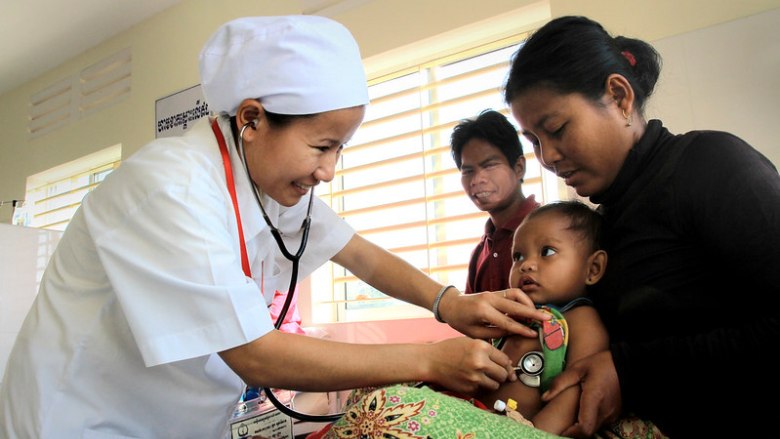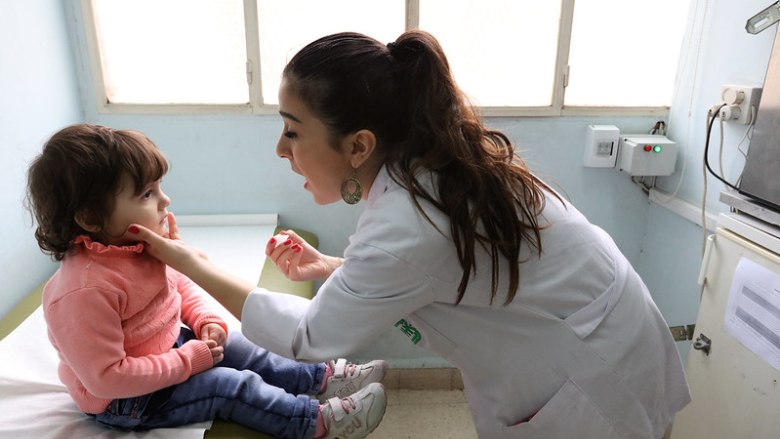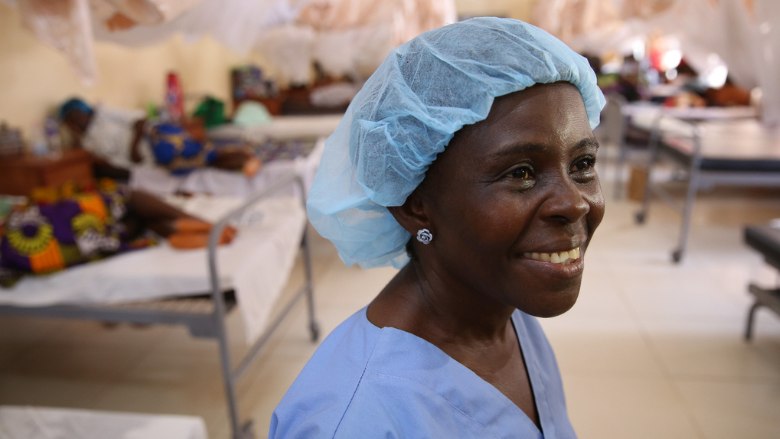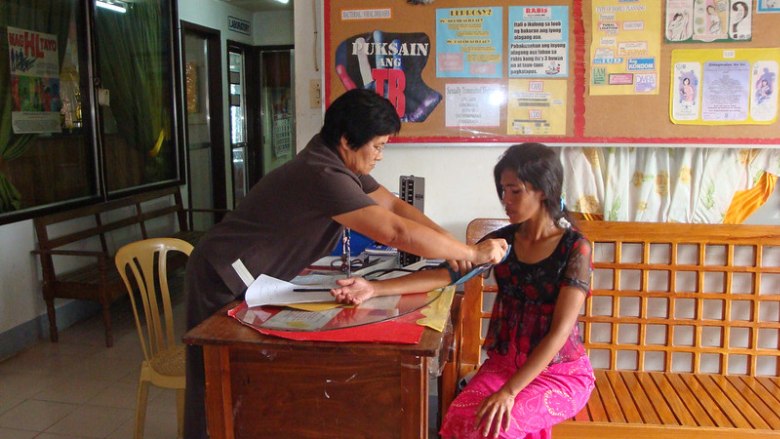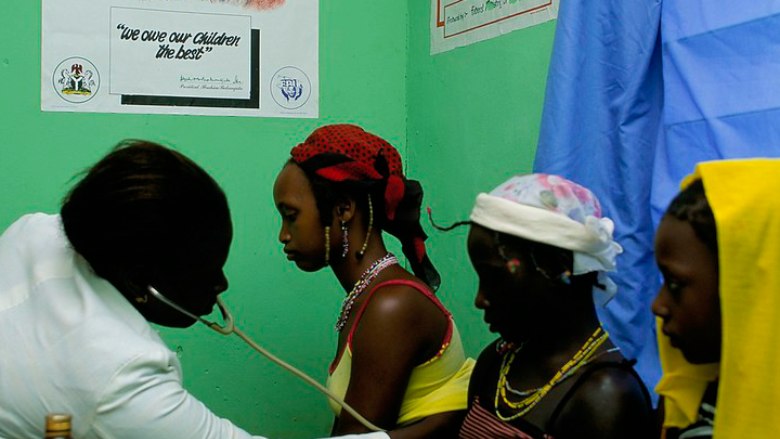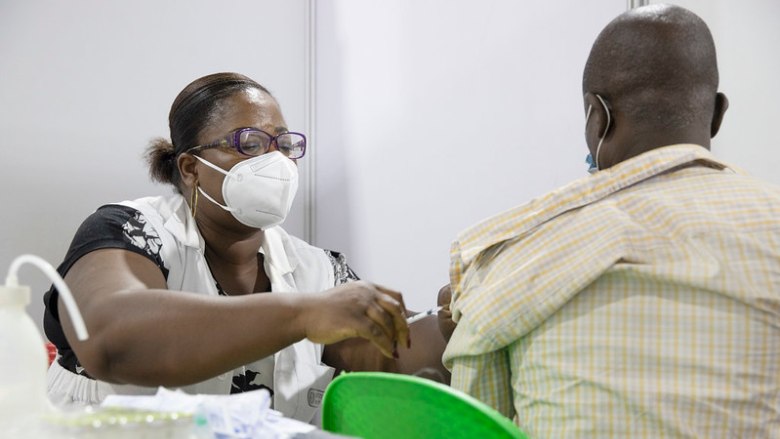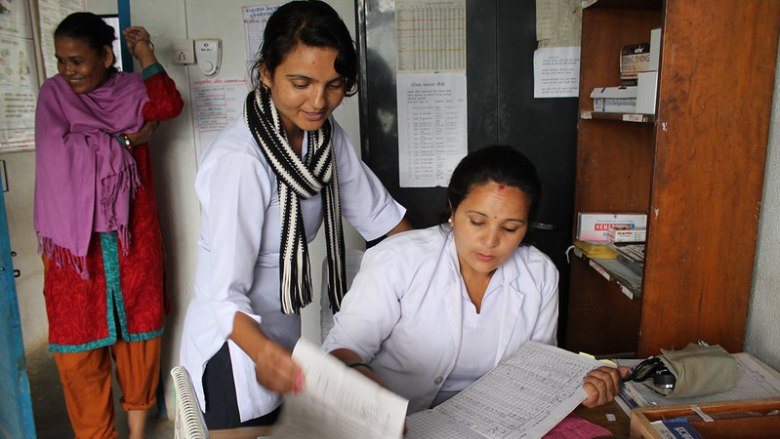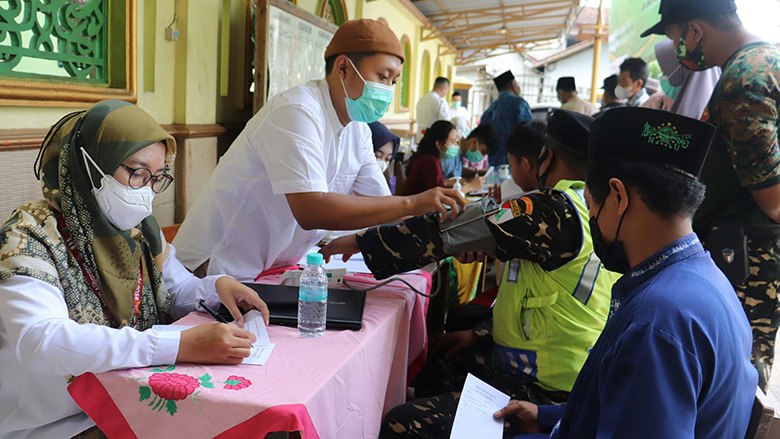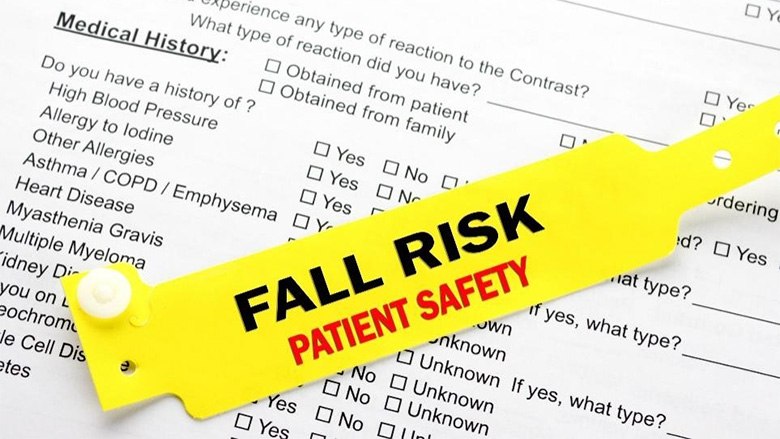Health, Nutrition and Population

-
Health Systems Flagship ProgramProgram | Universal Health Coverage | For Government Officials
This program offers a comprehensive suite of learning features designed to enhance countries’ capacities to strengthen their respective health systems, combining online, and in-person components strategically paced to blend technical capacity building, with forging participant networks to ultimately support country priorities and WBG Regional Health Strategies. More than just a training course, the program serves as a convening space for key multisectoral stakeholders in the health arena, both at a country level and at a regional level, to identify collective solutions, to address the most significant health system performance challenges, and to develop long-term strategies and reforms. This will not only generate tangible pointers for action, but it will be a unique opportunity for stakeholders to connect and collaborate, engage in open and effective policy dialogue, develop further technical skills, and turn a community of practice into a powerful system of influence.
-
Social Health InsuranceE-Learning | Health Financing | For Government Officials
This course introduces Social Health Insurance (SHI) and its key concepts. It is designed for a general audience and serves as a pre-read or post-read for those engaged in health systems strengthening. The course helps participants prepare for policy discussions on health care reform through a health systems approach.
-
Attacking Inequalities in HealthE-Learning | Universal Health Coverage | For Government Officials
This self-paced course helps participants understand how to tackle health inequities through a health systems approach. It covers the causes of health inequalities, the elements of health systems that increase them, and the variations in these causes across different countries. Participants will also learn from successful reforms aimed at decreasing health sector inequalities.
-
Decentralization to Enhance Health System PerformanceE-Learning | Health Financing | For Government Officials
This course focuses on decentralization as a health sector reform to improve efficiency and accountability. Using the "decision space" approach, it guides participants through policy and management issues in decentralization design. The course includes exercises that help participants apply the concepts to their own country context for a more practical learning experience.
-
Foundations of Healthcare Quality ManagementE-Learning | Universal Health Coverage | For Government Officials
This course covers the basics of establishing a quality foundation in your facility. It focuses on building a quality management program, designing a governance structure, and creating a quality improvement plan with the necessary documentation and procedures. Participants will gain practical skills to implement and manage quality systems effectively.
-
School Health & Nutrition: Reach and Relevance for AdolescentsE-Learning | Nutrition | For Government Officials
This course focuses on the developmental changes during adolescence and the benefits of intervening at this stage to strengthen human capital. It emphasizes the role of schools in delivering health and nutrition services and explores effective interventions for low- and middle-income countries. The course provides practical insights for designing and delivering adolescent-focused programs to improve health and education outcomes.
-
Addressing Antimicrobial ResistanceE-Learning | Universal Health Coverage | For Government Officials
This course helps participants navigate the challenges of tackling AMR by identifying key entry points for action. While primarily focusing on the health sector, it also highlights the role of other sectors within broader health systems. Participants will learn about the economic incentives for addressing AMR, its main drivers, and strategies to promote prudent antimicrobial use and overcome policy barriers.
-
Gender and Universal Health Coverage (UHC)E-Learning | Universal Health Coverage | For Government Officials
This course explores gender as a social determinant of health and its interaction with health systems. It highlights the role of gender in healthcare, its importance in achieving universal health coverage, and its relevance in addressing pandemics. Participants will gain insights into gender disparities in health, strategies for closing gender gaps in health data and research, and the impact of gender on health systems.
-
Behavior Change for Health System Strengthening and Achieving Universal Health CoverageE-Learning | Universal Health Coverage | For Government Officials
This course examines human behavior as a key determinant of health and its role in shaping health outcomes. It highlights major risk factors, such as undernutrition, unsafe sex, and substance abuse, and explores why traditional approaches to behavior change have had limited success. Participants will learn about emerging evidence on effective behavior-change strategies and how to apply these insights to health sector reforms for universal health coverage.
-
Human Resource for HealthE-Learning | Universal Health Coverage | For Government Officials
This course examines the critical role of health workforce planning in achieving Universal Health Coverage and the Sustainable Development Goals. It explores the complex decisions involved in determining the right number, type, and distribution of health professionals while ensuring they are well-trained, motivated, and supported. Participants will learn about five major human resources challenges in healthcare and potential interventions to strengthen health systems.
-
Foodborne Illnesses and Personal HygieneE-Learning | Food Safety | For Private Sector Leaders
This course is based on internationally recognized food safety requirements and best industry practices. It covers essential topics such as personnel hygiene, proper handwashing techniques, and required handwashing facilities. Participants will gain practical knowledge to help prevent foodborne illness and protect vulnerable populations.
-
Food Safety Reforms Course. Learning from the Best: The New Zealand Food Safety System in Case StudiesE-Learning | Food Safety | For Private Sector Leaders
This course, delivered by the International Finance Corporation, is based on New Zealand’s world-renowned food safety system, offering valuable insights and practical tools. Participants will explore best practices, case studies, and resources to enhance food safety in their own countries. Designed for those involved in food safety reforms, the course provides actionable solutions for both public and private sectors.
-
Food Safety Reform TrainingE-Learning | Food Safety | For Private Sector Leaders
This course, delivered by the International Finance Corporation, is designed to educate WBG staff on the core principles of food safety reform using the WBG Food Safety Toolkit. It covers technical, regulatory, and administrative aspects to ensure a common understanding across varying levels of expertise. Participants will also have opportunities to explore key food safety topics in greater depth.
-
The Operationalization of One Health Course I: Introduction to the One Health ApproachE-Learning | Universal Health Coverage | For Government Officials
The One Health concept emphasizes the interconnectedness of human, animal, and ecosystem health, highlighting the risks of zoonotic diseases and environmental changes. This approach helps improve prevention, detection, and response to health threats, as seen in recent pandemics like COVID-19. The module introduces the One Health approach, its value, and how the World Bank implements it in projects, aiming to enhance disease prevention and resource allocation.
-
The Operationalization of One Health Course II: Putting One Health into PracticeE-Learning | Universal Health Coverage | For Government Officials
The second course in "The Operationalization of One Health" series focuses on how to integrate One Health approaches into World Bank operations, building on the introductory course. It provides practical insights for incorporating One Health in project identification, preparation, implementation, and evaluation, with an emphasis on multi-sectoral coordination. The course covers key tools, investment prioritization, disease management, and project risk management, offering real-world examples from on-the-ground efforts
-
Food Prices for Nutrition: Cost and Affordability of a Healthy Diet and other IndicatorsE-Learning | Nutrition | For Government Officials
The Food Prices for Nutrition (FPN) eLearning course teaches users how to construct diet cost and affordability indicators that assess access to healthy diets and dietary standards. It covers the use of global standards like the Healthy Diet Basket and Food-Based Dietary Guidelines, and how to apply these indicators at national or regional levels, considering local food availability and eating habits. The course also introduces the FPN project, which provides metrics to monitor access to healthy diets and inform policies aimed at improving food security and nutrition.
-
Nutrition Responsive BudgetingE-Learning | Nutrition | For Government Officials
Nutrition is essential for human health, supporting growth, immunity, and disease prevention. Global challenges like food insecurity, poor diets, and limited access to nutritious food, especially in low-income nations, lead to undernutrition, obesity, and micronutrient deficiencies. This course aims to equip participants with the knowledge and tools to integrate nutrition priorities into public budgeting, manage nutrition interventions, and improve policy coordination for better nutrition outcomes.
-
Improving Quality in HealthcareE-Learning | Health Systems | For Government Officials
The International Finance Corporation’s Improving Quality-Healthcare program helps health care providers enhance patient safety and meet international quality standards. The program offers open resources like webinars and self-paced training, and includes a tool that measures performance in eight core areas with 150 quality assurance standards. We The program provides country-level quality evaluations to help governments seeking to improve their health care systems.
-
Improving Effective CommunicationE-Learning | Health Systems | For Government Officials
This course teaches participants how to improve communication in verbal and telephone orders, critical diagnostic results reporting, and patient handover. It provides policies, tools, and strategies to reduce errors and strengthen patient safety. Participants will learn to apply standardized communication practices and engage staff for consistent, effective processes.
-
Climate-Smart Health Systems CollaborativeE-Learning | Universal Health Coverage | For Government Officials
The Climate-Smart Health Systems Collaborative supports peer learning among governments to build health systems that adapt to climate change and promote resilience. It brings together mid- to senior-level practitioners from 21 countries who share innovations, co-produce practical knowledge, and solve common challenges related to climate and health, including governance, financing, data, multisectoral action, community engagement, and service delivery. The Collaborative aims to integrate climate considerations into health planning and help countries advance toward Universal Health Coverage (UHC).
-
Health Emergency Preparedness (HEP) CollaborativeE-Learning | Universal Health Coverage | For Government Officials
The Health Emergency Preparedness Collaborative supports peer learning among governments to design and implement more resilient health emergency preparedness programs. It brings together governments from 19 countries to share lessons, co-produce practical knowledge, and address priorities including financing, governance, surveillance, and multi-sectoral One Health systems. Over a 12–to 18-month period, members work collaboratively through virtual and in-person engagements to strengthen emergency preparedness within their health systems.
-
Digital Health CollaborativeE-Learning | Universal Health Coverage | For Government Officials
The Health Emergency Preparedness Collaborative supports peer learning among governments to design and implement more resilient health emergency preparedness programs. It brings together governments from 19 countries to share lessons, co-produce practical knowledge, and address priorities including financing, governance, surveillance, and multi-sectoral One Health systems. Over a 12–to 18-month period, members work collaboratively through virtual and in-person engagements to strengthen emergency preparedness within their health systems.
-
Domestic Resource Mobilization CollaborativeE-Learning | Universal Health Coverage | For Government Officials
The Joint Learning Network (JLN) Domestic Resource Mobilization Collaborative brings together practitioners from 19 countries to address the shared challenge of mobilizing domestic resources for health. Through peer learning and knowledge exchange, members explore strategies to reduce reliance on external aid and out-of-pocket spending, advancing sustainability, equity, and efficiency in health financing. The collaborative serves as a community of practice supporting countries in adapting and implementing practical solutions to strengthen Universal Health Coverage (UHC).
-
Joint Learning Network - Efficiency CollaborativeE-Learning | Universal Health Coverage | For Government Officials
The Joint Learning Network (JLN) Efficiency Collaborative provides a platform for countries to share experiences and address persistent challenges in using health resources efficiently. It focuses on systematic priority setting and measuring efficiency—two critical areas for improving health outcomes with limited resources. Through peer learning and practical guidance, the collaborative supports policymakers in adopting evidence-based approaches to resource allocation and health benefit package revision.
-
Joint Learning Network - Country Core Group - Community of PracticeE-Learning | Universal Health Coverage | For Government Officials
The Country Core Group (CCG) CoP was launched in October 2025 with the objective of cross-country learning on how to benefit most from JLN activities, including through sharing updates on ongoing technical activities in respective countries, identifying opportunities for CCGs to undertake country pairings and engage members, learn about upcoming joint learning opportunities within the network, share CCG demands and needs, and problem-solve CCG governance challenges.
-
Annual Health Financing ForumE-Learning | Universal Health Coverage | For Government Officials and Private Sector Leaders
The Annual Health Financing Forum (AHFF) is a leading global event that brings together key stakeholders from health and finance sectors to shape health financing policy. Participants engage in dynamic discussions, share cutting-edge evidence, and exchange country experiences to inform strategies for sustainable and equitable health financing. The forum serves as a unique platform for practitioners, policymakers, academics, and experts to collaborate on solutions to critical health financing challenges.
-
Improve the Safety of High-Alert MedicationsE-Learning | Health Systems | For Government Officials
This course guides participants in improving the safety of High-Alert Medications (HAMs), including LASA medications and concentrated solutions.
It provides tools, processes, and training strategies to prevent errors and reduce risks in medication management.
By completing the course, participants will gain the skills to identify, manage, and monitor HAMs to protect patients and improve safety outcomes.
-
Building a Safe Surgery CultureE-Learning | Health Systems | For Government Officials
This course focuses on WHO-recommended safe surgery practices to improve patient safety before, during, and after surgery. Participants will learn to build a safe surgery culture, establish effective surgical teams, and monitor compliance. The training equips healthcare providers with tools to reduce surgical risks and enhance patient outcomes.
-
Implementing a Hand Hygiene Program to Prevent the Spread of Infectious DiseaseE-Learning | Health Systems | For Government Officials
This course teaches healthcare professionals how to prevent the spread of infections through effective hand hygiene practices. Participants will learn to design, implement, and monitor a comprehensive hand hygiene program. The training covers infrastructure setup, staff engagement, and performance measurement to ensure lasting success.
-
Implementing a Fall Prevention ProgramE-Learning | Health Systems | For Government Officials
This course teaches healthcare teams how to prevent and reduce falls in hospital settings. It covers infrastructure, risk assessments, patient education, and compliance monitoring. Participants will gain the skills to build a sustainable fall prevention program that improves patient safety and outcomes.
-
.jpg?file_detail=cae639a3e3a7707a9696475dd549c404a4d7a5f8caf6c514a5122efdfc40387a81ff2c59c0e4e6c87194dfe09b3e3775d52908c46b3a085bf58d564ee47b9850e076f8f2ac5029bc4db60726b389873f4214d88c62b125ec1ddd412470d172053054aa0ac62bafa86bd67ab73fcb1dc7fb314c5e7c8e57fab5034ebb637929e3861bcff33c05dc656a491b07f802d6ccbd6673ac40d7e9fa429884c7f45ba61da56caad7abc38bada4605ec1e24ccf8cb988cb6914f87175ebe4b6235faef7c6b4872c3755f4d18da1625c61e2f18236:841e0f2e1f99914feedb5436cece716e:610cb2b40a6b4bb76141c31290faf28f&file_hash=eyJhbGciOiJIUzI1NiJ9.eyJob3N0X25hbWUiOm51bGwsInVzZXJfaWQiOjI0ODgyNzMsImlzX29yZ19hZG1pbiI6dHJ1ZSwiaXNfc3VwZXJhZG1pbiI6ZmFsc2UsIm9yZ2FuaXphdGlvbl9pZCI6MzAwMjg4LCJ0aW1lc3RhbXAiOiIyMDI1LTAzLTI3IDA3OjQ1OjI5IFVUQyIsIm9yZ2FuaXphdGlvbl91cmwiOiJ3YmcuZWRjYXN0LmNvbSIsImV4cCI6MTc1MDgzNzUyOX0.jJByClp7RYzOMSatRuCl6hlF0QlWeU2Nx19iwZhtLoQ&Policy=eyJTdGF0ZW1lbnQiOlt7IlJlc291cmNlIjoiaHR0cHM6Ly8qIiwiQ29uZGl0aW9uIjp7IkRhdGVMZXNzVGhhbiI6eyJBV1M6RXBvY2hUaW1lIjoxODA2MTc1NDMzfX19XX0_&Signature=PGOEhGnQalASPoBYvzX2CdGtyEs0KD55j9odGNVxu84n0-xRGtJgtkETpiO6FdEmwwpuBJbN-H6mX6ON0evAQ3hsAKTT65i3zbKFzi0~Tdo8DZTKOYtdD5-k7M~c-BKUueHbpkwL8Q86UiQ81PnJr3VFEtmIHLIkJmK5YKVY2GonUmM7n6-5M-vhrzfyRRY1x4W9xQV~Qk0mBpN1YLN6yuuQrKXq3YpwzuPLz~RoIA0cf8fP9MKRFRbrCmQK92ajfHI8izpPet0jRjAKPADcrew2ao~JAk~y5keE6y6c9JIwllfaQRdn3EdQq50pCQ1LcQ6YDlvNp~F3e8Jik9Tu7Q__&Key-Pair-Id=K3W0E1KYK63VRD) Implementing an Isolation Program to Prevent the Spread of Infectious DiseaseE-Learning | Health Systems | For Government Officials
Implementing an Isolation Program to Prevent the Spread of Infectious DiseaseE-Learning | Health Systems | For Government OfficialsThis course teaches participants how to design and manage an isolation program to control the spread of infectious diseases. It covers infrastructure, process setup, compliance measurement, and outbreak response. By completing the course, participants will gain the skills to implement effective isolation practices in healthcare facilities.
-
Incident Management SystemE-Learning | Health Systems | For Government Officials
This course teaches participants how to manage incidents effectively in healthcare settings. It covers incident definitions, types, reporting tools, and analysis methods. By completing the course, participants will gain the skills to build a robust incident management system that enhances safety and prevents recurrence.
